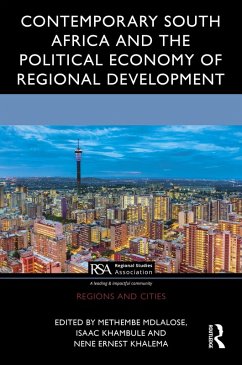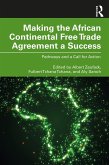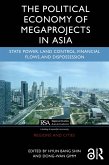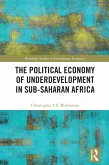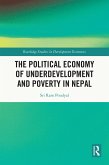The main focus of the book is to contextualise issues relating to three main trends in global discourses on development, which are significant for South Africa, and indeed, for the study of the political economy of regional development in the country from the prism of South Africa as a global capitalist state. These trends include the impact of globalisation, regionalisation, and the marginalisation of South Africa and indeed the African continent in the global economy, thus unpacking the possible role that South Africa might play in regional development.
This volume will be a valuable resource to academics, researchers and students in the fields of regional studies, economics and political theory as well as policymakers, planners and local economic development practitioners.
Dieser Download kann aus rechtlichen Gründen nur mit Rechnungsadresse in A, B, BG, CY, CZ, D, DK, EW, E, FIN, F, GR, HR, H, IRL, I, LT, L, LR, M, NL, PL, P, R, S, SLO, SK ausgeliefert werden.

